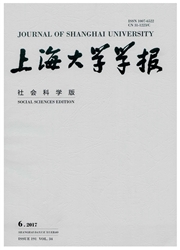

 中文摘要:
中文摘要:
刑法修订、刑法立法解释与刑法司法解释在刑法制定、修改和适用过程中发挥着重要作用,是刑法典与复杂多变的社会生活事实沟通的桥梁,是实现刑法稳定性与明确性的重要路径.然而,近些年来,刑法修订与刑法解释的界限日趋模糊,解释性的立法和立法性的解释大量涌现,欲坚守罪刑法定原则之底线,必须厘定刑法修订、立法解释和司法解释之间的界限:司法解释只能在文本规范内进行解释,“两高”对条文理解上的争议由立法解释进行裁决,只有确实需要对条文进行增减方能进行修订。解释者不能超越罪刑法定之界限,越俎代庖进行创设性解释,立法者亦不可随意修改条文,更不能自降身价任意解释。
 英文摘要:
英文摘要:
The revision, legislative interpretation, and judiciary interpretation of the criminal law plays an important role in the making, revision, and application of the criminal law, guarantees its stability and explicit- ness and serves as a bridge between the written law and the changeable social reality. However, in recent years, the boundary between revision and interpretation of the criminal law has become increasingly obscure, with the appearance of many cases of interpretive legislation and legislative interpretation. To stick to the bot- tom line of the principle of prescribed punishment for specified crime, it is a must to clarify the boundaries of revision, legislative interpretation and judiciary interpretation of the criminal law: judiciary interpretation should be conducted within the framework of textual norms. Controversies over meaning of the articles between the Supreme People's Procuratorate and the Supreme People's Court shall be decided by legislative interpreta- tion. Only those articles that do require addition or reduction shall be revised. The interpreter shall not breach the principle of prescribed punishment for specified crime and shall avoid transgressing the boundary by provi- ding creative interpretation. The legislator shall not revise the articles randomly. Neither shall they lower them- selves to provide random interpretation of the law.
 同期刊论文项目
同期刊论文项目
 同项目期刊论文
同项目期刊论文
 期刊信息
期刊信息
